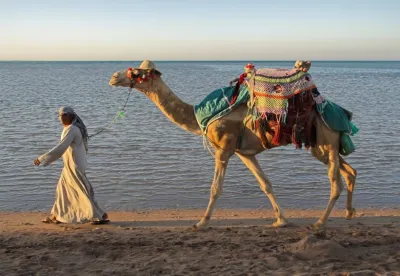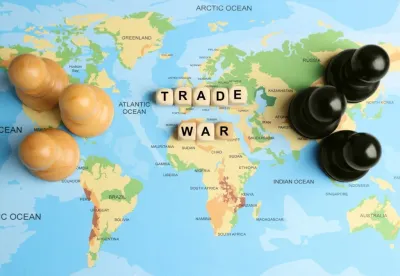
Lots of different terms are used in the tourism industry and their meaning can be sometimes quite confusing. Let's focus on the labels used for ethical travel and clarify their origin and meaning.
Can tourism have a positive impact on people’s lives and on the planet? More and more, environmental and humanitarian projects are learning how to harness tourism dollars to make a difference. Dignified livelihoods are being created in the field of tourism. In some places, ecosystems are better protected and researched, with tourism to thank.
This progress represents an alternative market that struggles with labeling itself coherently. For the mindful eater, alternative food products can call themselves ‘organic’ and ‘local.’ For the concerned consumer of goods like coffee and clothing, there’s ‘fair trade.’ Within travel, a perplexing multiplicity of labels get used and misused. Here are some of the most common:
Ecotourism
This is perhaps the oldest and most common label for tourism with a positive impact. The term was originally coined in Berkeley in 1965 by an academic who then pioneered the first “ecotours” to Mexico’s Yucatan peninsula. “Responsible travel to natural areas that conserves the environment and improves the well-being of local people” is the most cited definition. It came from The International Ecotourism Society in 1990.
Green tourism
The term “green” in a label can be deceptive. Businesses use “green” as a marketing tool without any plan to substantiate their claim, a ploy known as “greenwashing.” This trick is running rampant in the tourism industry. Rigorous certification systems have developed as ways for businesses to earn their green label. Some of the highest-profile certifications are Green Globe in Europe and the Rainforest Alliance in the Americas. They make sure their certified businesses meet a long, dynamic set of environmental and social criteria.
Responsible tourism
Tourism that “minimizes negative economic, environmental and social impacts” and meets seven other criteria for industry operators that were established at the 2002 Cape Town Declaration on Responsible Tourism in Destinations. Leeds University in the UK has an “International Centre for Responsible Tourism”, a research center that offers postgraduate degree programs. Not to be confused with “Responsible Travel,” which usually refers to a code of conduct for travelers to ensure respect toward their destinations.
Sustainable tourism
This phrasing is often used when applying the principles of sustainable development to tourism. The United Nations actually has a tourism agency, the World Tourism Organization, headquartered in Madrid. According to the WTO, sustainable tourism “leads to the management of all resources in such a way that economic, social and aesthetic needs can be fulfilled while maintaining cultural integrity, essential ecological processes, biological diversity and life support systems.” As with any notion of sustainability, it’s about balancing present consumption with the future.
Community-based tourism
Meet the local community of your destination through community-based tourism, and pass the economic benefits of your travels directly to them. That’s the idea of community-based tourism: an experiential, participatory, cross-culturally interactive form of travel, often set in rural village communities. CBT aims to include the local community as key decision-makers and stakeholders in the tourism development process of their area.
Pro-poor tourism
Tourism can have a role in poverty alleviation. Pro-poor tourism is defined as “tourism that results in increased net benefits for poor people.” Participating in pro-poor tourism will usually involve traveling to developing countries and deciding to spend money at micro tourism enterprises. For example, stay at a local guest house in Guatemala because it employs single mothers.
Voluntourism
Get involved while traveling by getting your hands dirty. “Voluntourism” is a neologism that comes from “volunteer tourism” and it’s growing fast. Programs that coordinate willing tourists with shorthanded projects are proliferating. On one end of the spectrum, some offer full support and coordination for younger or less experienced voluntourists. On the other end, directories such as WWOOF simply put travelers in contact with project sites.
Slow travel
This is a branch of the larger “slow movement” that also includes “slow food” and even “slow media”. A Manifesto for Slow Travel found on the Slow Travel Europe says it best:
“Slow travel is about making conscious choices. It is about deceleration rather than speed. The journey becomes a moment to relax, rather than a stressful interlude imposed between home and destination. Slow travel re-engineers time, transforming it into a commodity of abundance rather than scarcity. And slow travel also reshapes our relationship with places, encouraging and allowing us to engage more intimately with the communities through which we travel.”
Local travel
“Going local” while traveling. This is also gaining momentum as a movement. The Local Travel Movement website lists the following values:
“If you are mindful of the local people, you put yourself in the locals’ shoes and discover what they really think.
If you are mindful of the local environment, you put yourself in the heart of it, feel its beauty and power, and do what you can to preserve it for the future.
If you are mindful of the local culture, you put yourself in the local mindset and share in activities and experiences as locals do.
If you are mindful of the local economy, you put your money into local business and ensure that your tourism benefits the right people.”
The critics
Ethical tourism's identity crisis costs it credibility. Critics also point out a few other problems. Can these beneficial forms of tourism really offset the heavy carbon emissions of air travel and other negative impacts? Do labels even mean anything in the absence of an international set of standards? Others question the value of conscientious consumerism in general. Without proper governmental planning and policy in place, how much of a difference can travel shoppers really make?
The bottom line
The labels are different, but the message is the same. Travel choices make an impact on the environment and on people’s local cultures and economies. Knowing what labels to look for, travelers can search for ways for their time and money to do a little less harm than good.
By Cynthia Ord
Managing editor, The Travel Word newsletter










This is a good article.
I found this article excellent and already shared it with our company instructors.
I would like permission to reprint and distribute to our students. Please advise.
Thank you.
We agree that many travellers of today are questioning their impact on the communities that they visit and are looking for an experience that will allow them to see the country as it is and not from the vantage point of a sun bed with a cocktail in one hand! It is possible to do both and have a meaningful cross-cultural experience and leaving your footprint in the country that you visit and following it up with the R&R on the beach....